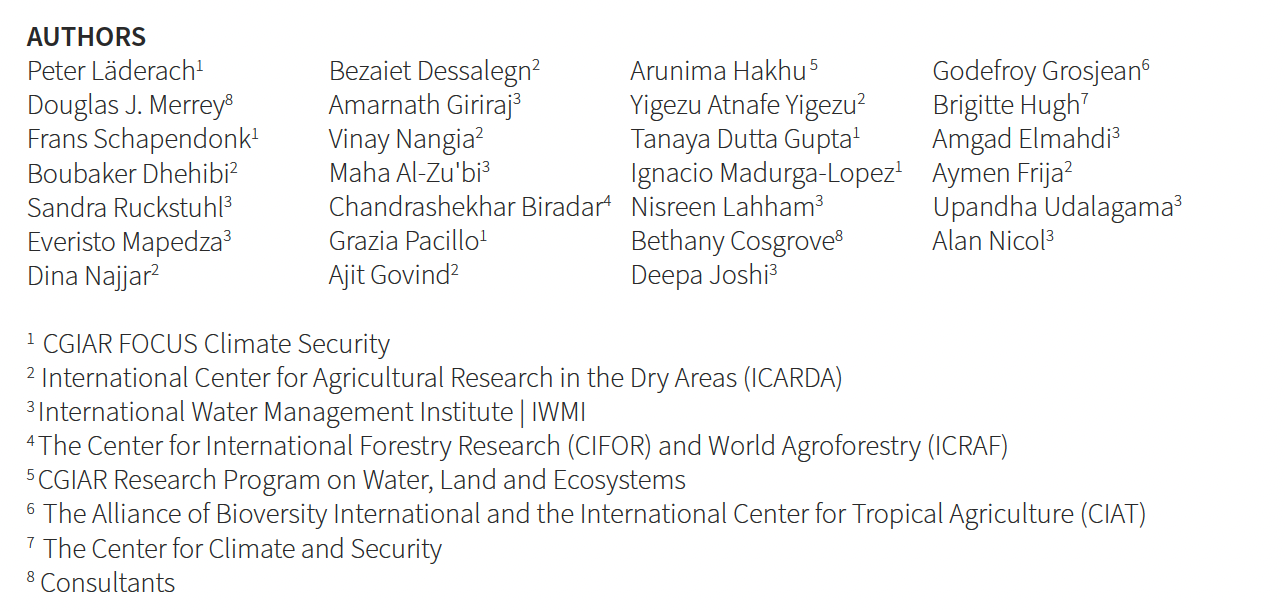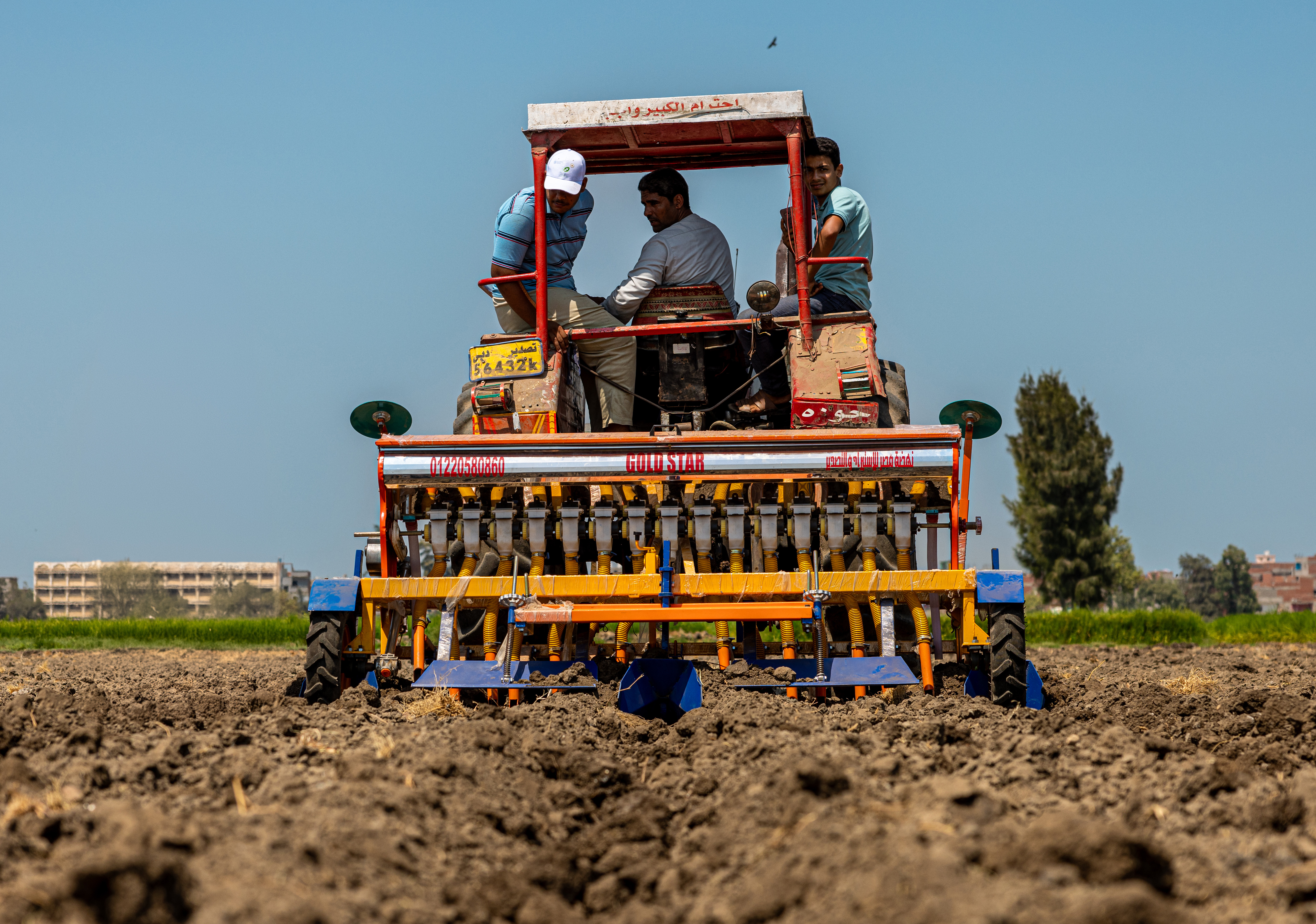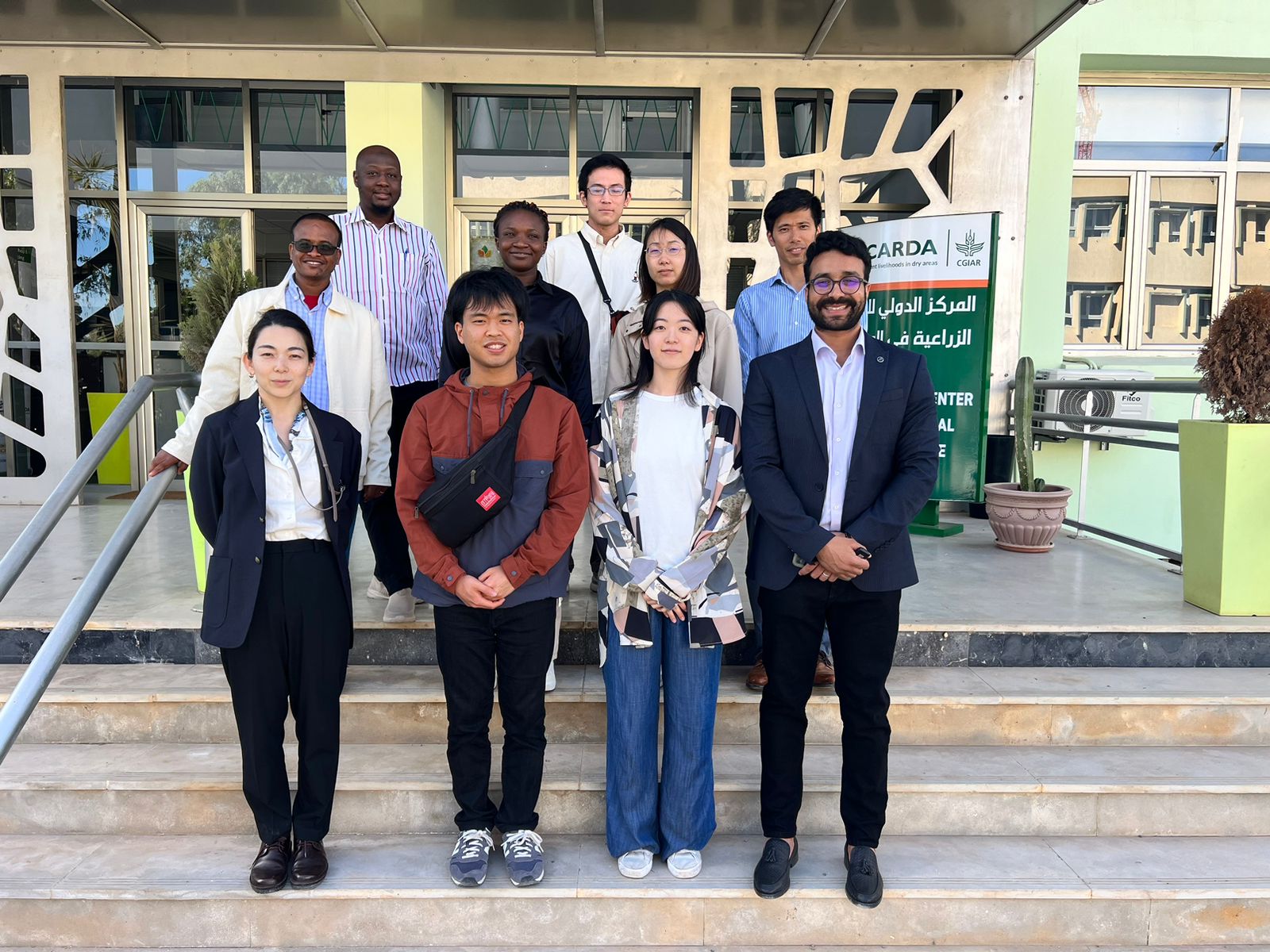CGIAR MENA CLIMATE REPORT LAUNCHED
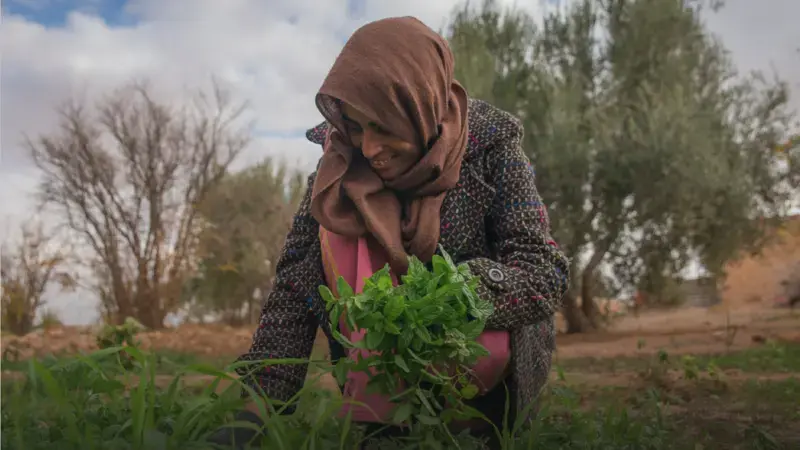
19TH October Cairo. This week at Cairo Water Week, The CGIAR MENA Climate Report was launched by Mr. Aly Abousabaa, CGIAR Regional Director for Central and West Asia, and North Africa, and ICARDA Director General.
The countries in the Middle East and North Africa (MENA) confront a large number of daunting challenges, including relatively high levels of conflict within and between countries, growing poverty, unemployment, loss of agricultural livelihoods, high levels of inequality leading to rising dissatisfaction with the status quo, and severe water scarcity and high temperatures that are being exacerbated by climate change. Many countries across the region have insufficient financial resources and political and institutional capacity to adapt to these changes.
This paper examines these climate-related security risks using a human security lens, asking three core questions: 1) what are the systemic risks in an already fragile region to which the climate crisis is contributing? 2) How are people and institutions at all levels currently responding? and 3) How can future policy actions help ameliorate risk and enhance regional capacity to achieve key sustainable development goals?
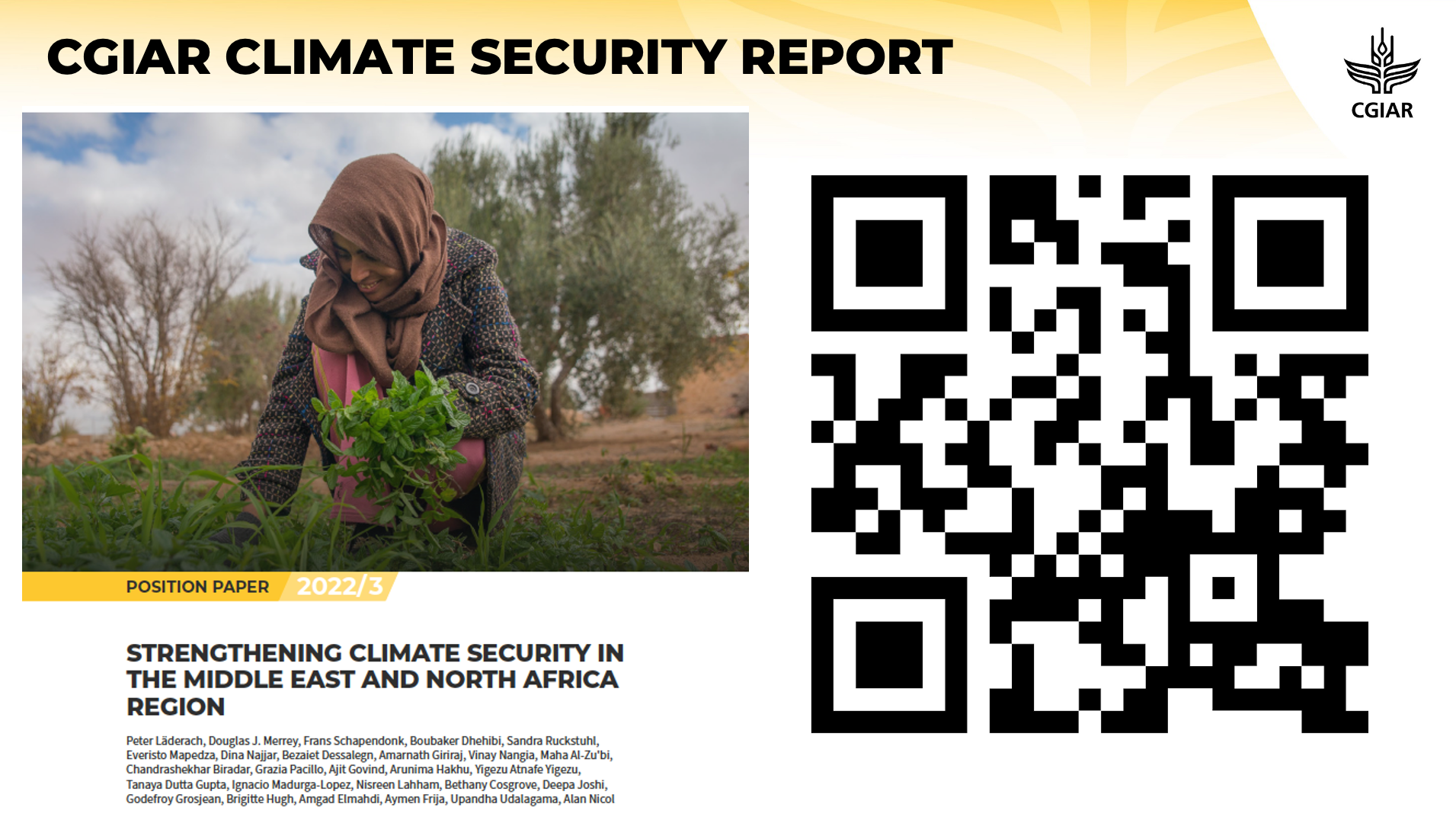
- We must develop a broader understanding of gender inequalities and climate insecurity across the MENA region. Women are especially vulnerable to climate impacts because of widespread lack of assets and access to resources. Farm-level interventions that utilise a feminist political ecology lens and emphasise the transformation of social and cultural structural barriers can help address the root causes of disadvantage and grievance.
- The region demands a more coherent strategy of targeted investments that help support longer-term prevention, with current investment often failing to address longer-term risks and stressors. Barriers to future investment must be overcome, including creating an improved business environment and stronger incentives/regulation to support substantial economic ‘green transitions’, backed up by conflict- and fragility-sensitive analysis to maximise co-benefits for peace and security.
- Given persistent trends of instability and fragility across several contexts in the region, tackling capacity loss is a major challenge. CGIAR has been at the forefront of regional capacity building efforts for rural livelihoods, for instance through training related to climate-smart farming measures. The diffusion of these methods can help prepare farmers for drought and improve yields/income but must be supported by wider national-level efforts in drought monitoring and climate information services.
- Linked to capacity development is the demand for improved monitoring and planning, including using remote sensing data coupled with agricultural technologies that can help prioritise and target areas for development and on-farm interventions.
- There is a growing need to respond at the water system level across the region to reduce climate-related fragility and security risks. Key steps include crucial policy reforms to manage demand more effectively, a stronger policy-level application of the ‘virtual water’ concept, and the creation of more effective transboundary water governance mechanisms.
- Innovation in land, water, and food systems is key in terms of improving what is grown and how. Genetic improvement of crop varieties and biodiversity is key, combined with more efficient agricultural water and land management that blends rainfed and irrigation practices more effectively. At the same time, thinking outside the box on ‘non-conventional’ waters, including wastewater management and reuse, will reduce the overall burden on a fragile resource base.
To read the full report use the QR code or click here
